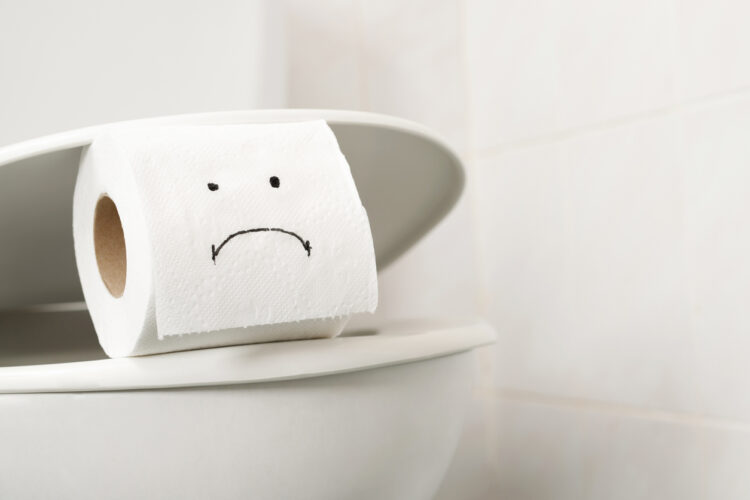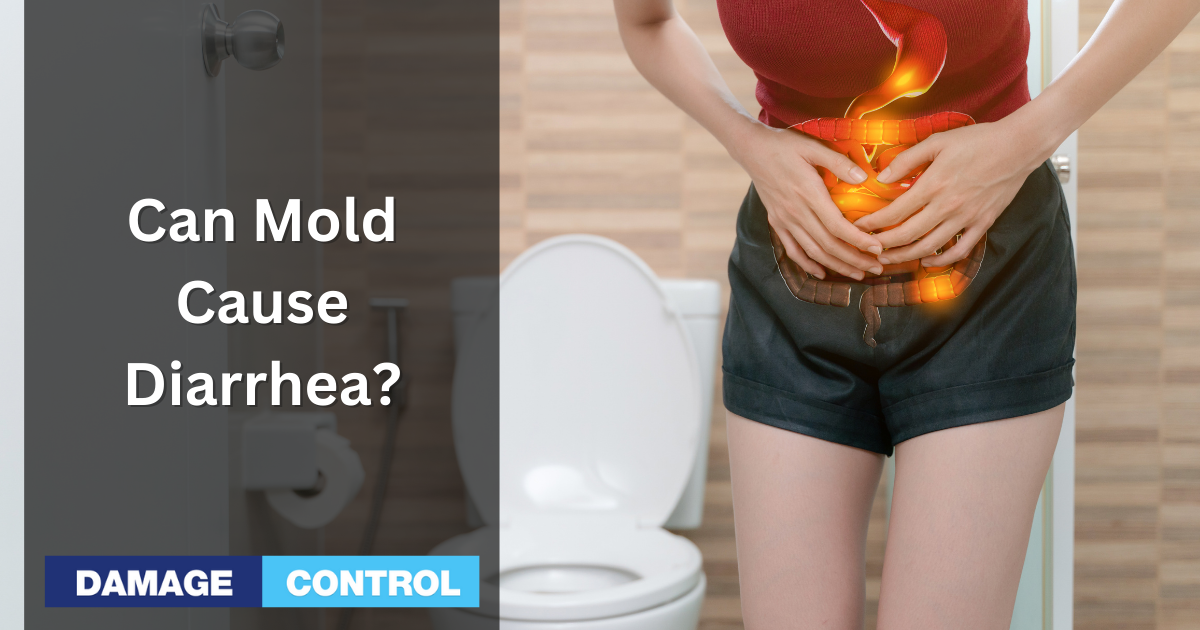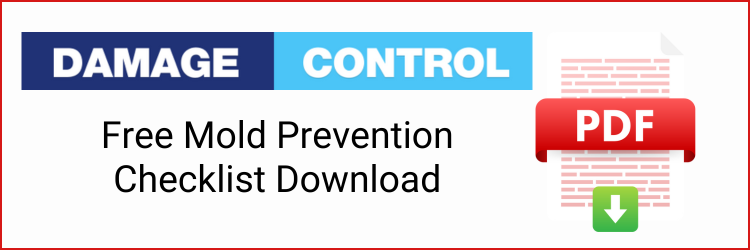Updated October 16th, 2024
Can Mold Cause Diarrhea?
Can mold cause Diarrhea? Some science suggest it can. When mycotoxins produced by mold are inhaled or ingested in significant amounts, they can disrupt the body's natural detoxification processes, leading to symptoms like diarrhea, nausea, and even more severe conditions like GERD.
Furthermore, these toxins can strain the liver, which is crucial in filtering harmful substances from our body. Understanding the relationship between black mold and digestive issues is essential for ensuring both personal and public health.
Molds, or more precisely, dangerous strains like Aspergillus, can severely impact one's health. That's not the worst one; the dreaded “black mold” has been used as a biological weapon.

Mold in your body can release toxins that irritate your intestines, possibly leading to diarrhea. Mold’s impact goes beyond what we usually think. Reactions to mold vary from person to person.
While mold mainly affects our respiratory system, it can harm our health in other ways too. People with weakened immune systems might get sicker from mold exposure than others.
Whether it’s black mold or another type, exposure can cause a range of health problems, from minor to severe. You might first notice a stuffy nose, but more serious symptoms, like trouble breathing and chest tightness, can develop. In extreme cases, this can even lead to lung bleeding.
People with weak immune systems or chronic lung disease are at higher risk. They may suffer from lung infections and inflammation in their lungs.
Mold in the workplace is a serious health issue too. It can worsen asthma and cause lung inflammation when dust containing mold spores is inhaled.
This type of lung inflammation is similar to pneumonia but doesn’t respond to antibiotics, making it harder to treat and even more concerning.
Mold doesn’t just affect your lungs. High mold levels can interfere with your body’s natural ability to remove toxins, causing digestive issues like diarrhea, vomiting, and GERD. In severe cases, mold can even lead to internal bleeding, which is why keeping a mold-free environment is so important for overall health.
You might also notice signs of mold exposure on your skin, like rashes or itching. Mold can worsen sinus congestion, trigger allergic reactions, and increase lung issues, especially for people with weaker immune systems. Be on the lookout for any signs that your body might be reacting to mold.
10 Tips for Reducing Mold-Related Diarrhea

Avoid Mold-Susceptible Foods
Temporarily avoid foods prone to mold growth or relying on fermentation. This includes aged cheeses, cured meats, leftovers, and fermented products like sauerkraut or kombucha.
Properly Store and Handle Food
Follow essential food safety practices. Ensure perishable foods are stored at proper temperatures, refrigerate leftovers promptly, and practice good hygiene while handling and preparing meals.
Follow Doctor's Orders
Take any prescribed medications as directed by your doctor. Adhere to the recommended dosage and duration of the treatment plan. If approved by your doctor, over-the-counter medications may help relieve nausea.
Rest and Hydrate
Resting is vital to allow your body to recover. Also, drink plenty of water to replenish lost fluids and electrolytes. Consider consuming clear fluids like broths, herbal teas, or electrolyte-rich beverages.
Consume Light, Nourishing Foods
Opt for easily digestible, low-fiber foods during recovery. This may include plain rice, boiled potatoes, lean proteins, and cooked vegetables. Gradually reintroduce other foods as your symptoms improve.
Maintain Good Hygiene Practices
Practice thorough handwashing before handling food or eating to minimize the risk of ingesting additional mold or harmful bacteria.
Enhance Indoor Air Quality
Utilize air purifiers with HEPA filters to reduce airborne mold spores and improve the overall air quality in your home.
Seek Professional Mold Remediation
If your mold-related symptoms persist or your home has extensive growth, consult professionals specializing in mold remediation to ensure proper removal and prevention.
Consult a Healthcare Professional
If your symptoms persist or worsen, consult a healthcare professional for further evaluation and guidance tailored to your specific situation.
Conclusion
In assessing the impact of black mold, suspect mold in your environment, and act immediately. These mold spores could infiltrate your system, inciting multiple health issues.
One can't overlook the connection to diarrhea, perhaps induced by fungal infections. Furthermore, mold spores may also lead to respiratory illnesses, intensifying the urgency of mold eradication and prevention.
References:
Centers for Disease Control and Prevention. (2022). Mold and health effects. Retrieved October 16, 2024, from https://www.cdc.gov/mold/faqs.htm
Environmental Protection Agency. (2023). Health effects of mold. Retrieved October 16, 2024, from https://www.epa.gov/mold/mold-health-effects
World Health Organization. (2022). Damp and mold: Health risks, prevention and remedial actions. Retrieved October 16, 2024, from https://www.who.int/news-room/fact-sheets/detail/dampness-and-mould
National Institutes of Health. (2021). Health effects of black mold exposure. National Institute of Environmental Health Sciences. Retrieved October 16, 2024, from https://www.niehs.nih.gov/health/topics/agents/mold/index.cfm
Mayo Clinic. (2023). Mold allergy: Symptoms and causes. Retrieved October 16, 2024, from https://www.mayoclinic.org/diseases-conditions/mold-allergy/symptoms-causes/syc-20351504


